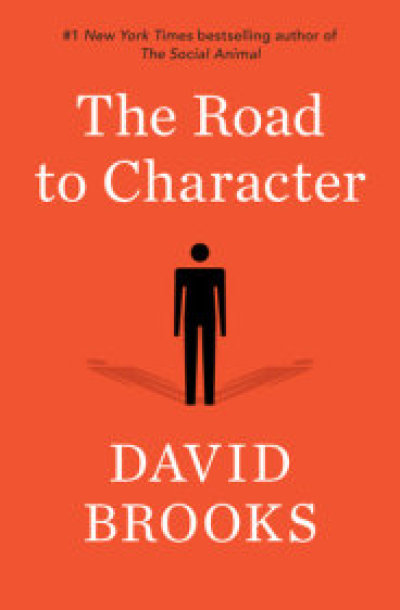NYT Columnist David Brooks Asked by Jewish Christian If He Accepted Jesus Christ Yet; Here Is His Answer

WASHINGTON — David Brooks' new book, The Road to Character, is not a religious book but contains many Christian themes. At an event hosted by The Trinity Forum, a Jewish Christian asked Brooks if his faith journey led him to become a follower of Jesus Christ.
A gentleman who said he became a Christian 20 years after his bar mitzvah asked: "I came to realize that if God expects me to do good deeds, then how can doing a good deed, ... which is expected of me anyway, how can that make up for my sins? And I was not yet familiar with Isaiah 64. ... It seems to me that along your journey, you have picked up the many pieces needed to find the true transcendent truth. Judaism today, God's favors is earned by ... good works. How does this fit with your journey to find answers?"

The Road to Character is not an explicitly Christian book, yet many Christian themes ooze from the pages.
In answer to another question, Brooks stated, "My book is not a religious book. It uses religious categories ... and I do that because I think the public square needs to have these words reintroduced, and frankly, in a non-sectarian manner."
According to the index, sin is mentioned about 70 times. (The index further categorizes 42 specific types of sin.) Redemption has 10 entries. And grace is discussed at least six times.
Humankind has two sides, Brooks wrote, Adam I and Adam II. (Adam is used for both genders. Eve does not get a pass.)
"Adam I wants to build, create, produce and discover things. He wants to have high status and win victories. ... Adam II wants to have a serene inner character, a quiet but solid sense of right and wrong — not only to do good, but to be good."
Adam I conquers. Adam II serves. Adam I is what you put on your resume. Adam II is what is said at your funeral.
The Road to Character is both about Brooks' personal quest to elevate his Adam II, and a cultural critique of the influences that led to an American psyche that elevates Adam I and ignores Adam II.
"After a life of seeking balance, Adam I bows down before Adam II. These are the people we are looking for," Brooks concluded in his introduction.
The rest of the book looks at exemplars of an Adam II life. The models are diverse, with different genders, races, sexual orientations, classes and religions: Frances Perkins, Dwight Eisenhower, Dorothy Day, George Marshall, A. Philip Randolph, George Eliot, St. Augustine and Samuel Johnson. Each life teaches a different lesson on the "road to character" which are signaled by their chapter titles, respectively, "The Summoned Self," "Self-Conquest," "Struggle," "Self-Mastery," "Dignity," "Love," "Ordered Love" and "Self-Examination."
Through Catholic social worker Day, for instance, Brooks learned that even though we often strive for personal happiness, it is the seasons of suffering that build our character.
Brooks comes closest to presenting the Gospel in his chapter on Augustine.
In a section of that chapter titled, "Agency," Brooks wrote that Augustine "came to conclude that the way to inner joy is not through agency and action, it's through surrender and receptivity to God. The point, according to this view, is to surrender, or at least suppress, your will, your ambition, your desire to achieve victory on your own. The point is to acknowledge that God is the chief driver here and that he already has a plan for you."
In the next section, titled "Grace," Brooks continues: "In Augustine's view, people do not get what they deserve; life would be hellish if they did. Instead, people get much more than they deserve. God offers us grace, which is his unmerited love. ....
"One of the things you have to do in order to receive grace is to renounce the idea that you can earn it. ... Then you have to open up to it."
This point is repeated in his summarizing 15 point "Humility Code." Point number 10 states, "We are all ultimately saved by grace."
Answering the Jewish Christian who asked about the "true transcendent truth," Brooks recalled that he attended a Catholic school and sung in the choir. All the Jewish kids in the choir reconciled their faith with the singing of Christian hymns by not singing whenever Jesus' name came up.
The Road to Character is like that choir — a Gospel in which Jesus is muted. Which is another way of saying, an incomplete Gospel.
"In the intertwining of [Judaism and Christianity], the question of agency and grace is crucial. And how much can you get there on your own and how much do you require an act of surrender?" Brooks continued. "And I attest, it's a question that's unsettled in my mind. I was raised in an achievement culture with a belief you can earn your way. At some point it occurs to you, you have to raise a flag of surrender and surrender your will. And I'm unclear. I don't have an answer to that."
A video of Brooks' talk will be posted to The Trinity Forum's website.




























